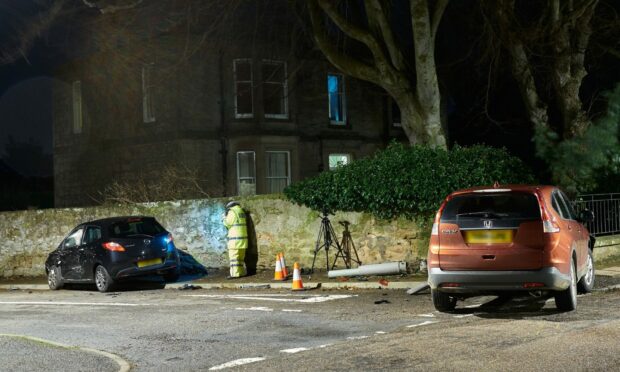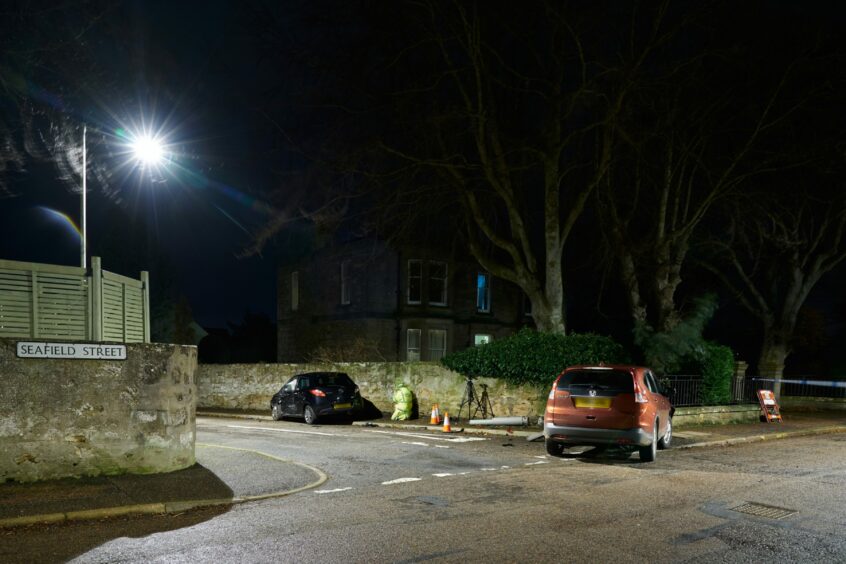A police collision expert investigating a crash that resulted in the death of a 91-year-old concluded that responsibility “lies solely” with an elderly driver who failed to give way at the junction.
Pc Mark Dalloway was giving evidence in the trial of 75-year-old Christina Cameron, who denies causing the death of pedestrian James Alexander by careless driving on the evening of January 21, 2021.
Mr Alexander was struck by Cameron’s car at the Thurlow Road junction with Seafield Street in Nairn and died in Raigmore Hospital four days later from severe spinal and pelvis injuries.
It’s alleged Cameron, of Osprey Crescent, Nairn, drove her Mazda without due care and consideration, failed to maintain proper observations, failed to give way at the junction where the accident happened and collided with another car, a Honda.
Pc Dalloway told Inverness Sheriff Court he drew his conclusions after examining tyre and grind marks at the crash scene, as well as damage to Cameron’s Mazda and the Honda CRV.
Views at junction were restricted
He said: “The responsibility for the collision lies solely with the driver of the Mazda who failed to give way. There was a collision with the Honda and then the Mazda hit the pedestrian.”
He added that the driver’s inattention was at fault, providing Cameron was “fully alert.”
The constable added that although he could not determine the Mazda’s speed, it was not creeping out of the junction nor was it stationary.
His reconstruction and recognised reaction times determined that Cameron would only have had half a second to a second to try to avoid crashing into the Mazda.
The officer said typical reaction times that drivers take to avoid a hazard are one to two seconds.
He conceded that views at the junction were restricted but, even at night, the give way white lines on the road were clearly visible.
Medical evidence
During the trial, Cameron’s defence counsel Ewan Dow questioned medical experts about his client possibly fainting briefly at the wheel.
Two medical experts who gave evidence on day two of the trial disagreed over Cameron having had a temporary black-out.
Ninewells cardiologist Dr Stuart Hutcheon said that syncope (fainting) was “a remote possibility but highly unlikely” after examining the pensioner’s medical records and witness statements.
He said there was no history before, during or since of blackouts by Cameron.
The defence commissioned a report on syncope by Professor Adrian Brady, who was also involved in the Glasgow bin tragedy court case in 2014.
He concluded having considered the same evidence, that syncope was a likely cause.
The trial, before Sheriff Ian Cruickshank, continues.

